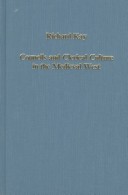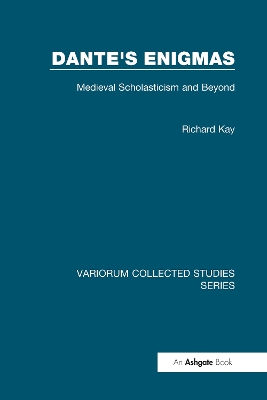Variorum Collected Studies
2 total works
CS 571
Nineteen studies in English regarding the culture, liturgy and legal institutions of the medieval church in the Latin West. The central theme concerns church councils and synods, emphasizing the conciliar corpus and studies acts, procedure, and canonical status, particularly in the 13th century. This work includes discussion of a number of liturgical manuscripts relating to ceremonials carried out at these councils, and an examination of the clerical and legal culture of Dante and his intended readers. Other studies focus on the origins of French clerical taxation and the conflict between Boniface VIII and Philip the Fair; a new dating for the "Rule of Benedict"; a revised chronology of the archbishops of York; and clarification of the relationship between the chronicle of Roger Wendover and that of Matthew Paris.
Dante's Comedy is a puzzling poem because the author wanted to lead his readers to understanding by engaging their curiosity. While many obscure matters are clarified in the course of the poem itself, others have remained enigmas that have fascinated Dantists for centuries. Over the last thirty-five years, Richard Kay has proposed original solutions to many of these puzzles; these are collected in the present volume. Historical context frames Kay's readings, which relate the poem to such standard sources as the Bible, Aristotle, Aquinas, and the Latin classics, but he also goes beyond these Scholastic sources to exploit Dante's use of less familiar aspects of Latin clerical culture, including physiognomy, Vitruvian proportions, and optics, and most especially astrology. Kay explores new ways to read the Comedy. For instance, he argues that Dante has embedded references to his authorities in a continuous series of acrostics formed by the initial letters of each tercet. Again, he shows how Dante returns to the theme of each infernal canto and develops it in the parallel cantos of Purgatorio and Paradiso. Particularly worthy of note are four essays on the poem's finale in the Empyrean.

